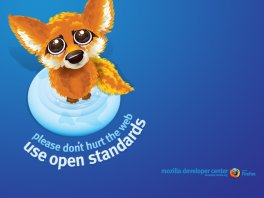Once upon a time, the idea that “only the code mattered” was sold as a way to be inclusive. No one would be shut out if their code was good.
But building software is more than code. It’s design. Planning. Discussion. It’s figuring out use cases, misuse cases, and failure modes. It’s interacting with people.
And if you allow some people to treat others like crap because only the code matters, you end up causing harm and driving people away.
Which obviously isn’t inclusive.
If you mistreat people or violate ethics to make your “technically perfect” software, those people have still been mistreated. Those ethics have still been violated. People have created marvels of engineering and fantastic art by abusing or exploiting others. People have done the same while abusing or exploiting people on the side. And people have created wonders while trying very hard not to abuse or exploit others.
The accomplishment doesn’t erase the exploitation or abuse. And if you can accomplish something incredible without mistreating others, it obviously doesn’t justify the mistreatment.
But the culture of “only the code matters” turned into a culture of tolerating assholes because they were good at their job. The ends justify the means. From trying to enhance freedom, to embracing Machiavelli.
It certainly didn’t help that 90s hacker culture had a significant BOFH element to it, with its built-in disdain for those with less technical knowledge. The Free part tended to prioritize programmers and sysadmins over “lusers.” It was Animal Farm with computer users. Sure, we tried to throw off the corporate overlords who were dictating how people could use their computers. But some computer users were more equal than others.
So a lot of people who could have become part of the Free Software community found a hostile environment and left in disgust. Or fear. And even if you don’t care about the harm done to them, consider their potential contributions. Free Software has always had a problem with coverage: Programmers work on problems that they find interesting or useful. The boring parts, the use cases that they personally don’t use, tend to fall by the wayside.
Yeah, your code is good…but the spec’s incomplete because you pushed away the people who would have pointed out a common use case, or just how easy it would be for a feature to be misused. You didn’t think they were worth listening to because they weren’t rockstar coders. But they also had information you didn’t.
Not that throwing off the corporate shackles has worked out all that well. Every platform now has its own walled garden. Microsoft is less dominant than it once was, but we have new mega-corps who’ve managed to leverage an internet built on Free/libre and open-source software into their own positions of dominance. And trying to maintain services for people who’ve come to expect free/gratis has brought us to the point where adware is the norm, and surveillance is everywhere…to better target those ads. And the majority of computing devices out there are locked down, preventing ordinary users from tinkering with them and developing that technical competence that might bring them into the fold…
If we’ll even let them join.
